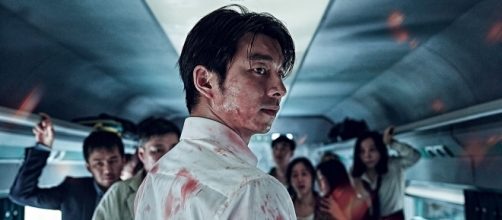'Train to Busan' is a Korean zombie movie, which in itself is weird to state; though Asia is known for their petrifying supernatural movies (that are often made into western remakes such as 'The Ring' and 'The Grudge'), they rarely dwell into the zombie genre that Hollywood love to exploit so much. That being said, there is no reason for that fact to downplay this movie before watching and certainly after watching, you realise that while zombie movies have been made for 50-60 years, this movie offers something new.
Compelling characters
What zombie movies often lack is compelling characters that really draws the viewers in.
Generically the characters always seem to stay the same, and from the onset it has almost become second nature now to know whether a character survives or not. Generally speaking there's always a male and female protagonist that are almost always the survivors, side characters that usually have contain some annoying trait that causes viewers to not empathise when they die and normally somehow elderly people are involved that more often than not are the moral conscience of the movie but usually do not survive. It has become a very repeated and lazy genre.
'Train to Busan' however delivers a very powerful performance from its characters and truly grasps the viewers. The movie centres around a seemingly recently divorced father (Seok-Woo), who works as a fund manager, and his innocent young daughter (Su-an) who has a very humanitarian view to life.
Together they embark on a train to Busan to visit her mother for Su-an's birthday which was reluctantly promised by her father. From the onset, you find out that Seok-Woo has been neglectful of his daughter due to his commitments of being a fund manager and you see that Su-an's life suffers from this.As the movie progresses, you realise that the Seok-Woo possesses a very selfish nature, which is played out in many scenes, while Su-an feels the need to help other when possible. It is this contrast in characters which make it compelling and real; resembling a realistic father and daughter relationship but ultimately, you realise that the pair love each other unconditionally, which is shown especially in the final moments of the movie.
The raw emotions shown by the pairing (coupled with their acting) truly brings this movie to life which so often others fail in doing.
It is important to note that each of the side characters introduced had their own unique relationship and were equally important to the movies story. They all had their roles; whether it was to add light-heartedness or a twist in the movie. They weren't simply there just to kill off.
This movie revolutionises the idea that a one-hour-plus zombie movie can develop empathetic characters to great effect while also delivering the textbook zombie thrills and action.
Uniquesetting
So often has zombie movies used the apocalyptic city setting, where the survivors need to hole up in a destination or move across the city to another, for whatever plot inducing reason.
However, in 'Train to Busan' (as you can imagine) is set within a train which creates a new perspective of how people deal with apocalyptic situations. From moments such as having to move across train carriages filled with zombies in order to save people to having to rush back from the platform to the train after help did not come, the movie puts the viewers in these new interesting situations which have not been witnessed before. What seems like an arbitrary setting actually makes for a really fresh and interesting plot-line.
Following this point, is really worthy to note that while zombie movies often feature guns, this movie plays to the realism of Korea and does not introduce any.
Asian movies rarely hit the Western market (for whatever reason that may be) but that fact does not discount the brilliant cinematography that is often produced and this movie definitely deserves worldwide credit and recognition for bringing new and fresh ideas to an old genre.

